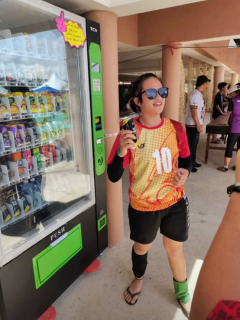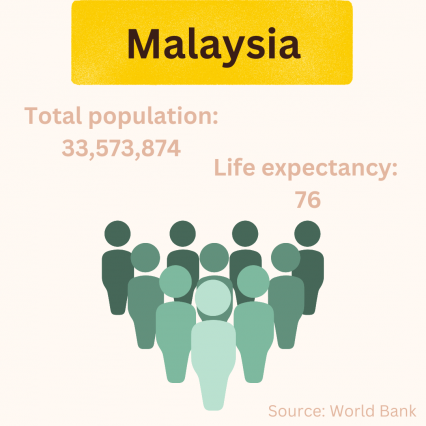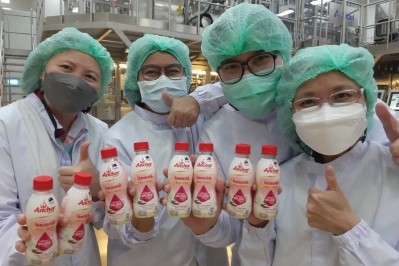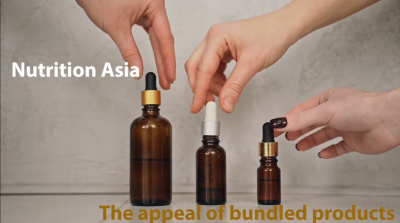VitamINSIGHTS
Exclusive Malaysia nutrition sector analysis: From vending machine trend to fears over unregistered products online

The South East Asian country, located between Singapore and Thailand, has a vitamin and dietary supplement market size of RM$4.896 bn (US$1.09bn) last year, local industry body Malaysian Dietary Supplement Association (MADSA) said, citing data from Euromonitor.
This was up 10 per cent year-on-year, a steeper increase than the 4.5 per cent growth recorded between year 2020 and 2021.
Against this backdrop, some companies in the nutraceutical business have reported record revenue.
Amway (M) Holdings, for example, posted a record revenue of RM$1.51bn (US$337.59m).
“Group revenue for the financial year ended 31 December 2022 was higher than last year by 1.9 per cent mainly driven by strong demand towards health and wellness, personal care products as well as new launches, supported by growth in buyer base,” said the firm on its financial results released on Bursa Malaysia.
On the other hand, Holista Colltech, the company behind probiotic brand Lacto-5, one of the bestselling probiotics in Malaysia’s e-commerce space, said that revenue from its supplement products fell two per cent to AUD$6m (US$4m). Nonetheless, this was still 15 per cent higher than two years ago.
It explained that last December’s quarter sales were impacted by economic uncertainty stemming from rising interest rates as well as the elections, which the firm said had “weighed on consumer spending across the country.” Sales had however, started to rebound in January this year.
In this VitamINSIGHTS, we take a closer look at changes in consumer purchasing behaviour as well as the major challenges that the nutraceutical industry in Malaysia is facing and trying to resolve.
Part I: Beyond pharmacies, e-commerce…Vending machines for selling functional foods and supplements?
One of the new trends in Malaysia’s functional foods and supplements sector, is to sell through vending machines.

One of the brands adopting this method is YesHealth, which launched its first smart vending machine in March last year.
The firm said that this would allow the public to purchase health products conveniently.
From powder sachet to softgel capsules and chewable tablets, the products are stocked in the vending machines labelled as ‘Your Health Fridge’.
Examples of these products include Yes ArticuCare, a sachet formulation for improving joint mobility and overall bone health, and evening primrose oil plus vitamin D3.
Prices of these products are also lower than those retailed in brick-and-mortar stores. For example, a box of Yes ArticuCare containing 14 sachets retails at RM$99 but is sold at RM$64 on the firm’s website and via its vending machines.
Location wise, most of the machines are found in the shopping malls. Examples include Central I-City mall and Dpulze mall in Selangor, Cheras Leisure mall at Kuala Lumpur, as well as the airport, according to the company’s website.
Homegrown nootropic firm Eureka Drinks also sees the potential in the use of vending machines.
Speaking to NutraIngredients-Asia, founder Fadzrul Dullie said that the firm’s nootropic beverages have been stocked in 800 vending machines across both West and East Malaysia for the past month.
In West Malaysia, it is working with JV Smart Vending and Borneo MA Smart Vendors in East Malaysia.
“There is a trend now of getting products directly from businesses to the consumers as soon as possible,” Dullie said.
Citing the examples of Japan and South Korea, Dullie pointed out that the use of vending machines was already highly popular in these countries and he believed that this would also take off in Malaysia, especially for functional drinks, where convenience is king.
“It’s the best place for selling functional foods and nutraceuticals. You can see that some vending machines offer vitamins, some are already offering face creams and all that in the airport. This is an emerging trend, and it will dominate soon, I think.
“In the vending machines that are selling our products, in addition to coffee and biscuits and I would say that ours is the only functional brand that they have."
All of its six SKUs are stocked in the vending machines. The functional drinks address needs from sleep aid to energy boost. Two of its latest launches are for supporting libido and beauty-from-within.
The firm is in the midst of stocking its drinks in more machines, and the aim is to stock the products in 4,000 machines by year end.
Dullie believes that the vending machine model would attract young consumers.
Watch the video below to find out more about the firm’s plans for selling its functional drinks via vending machines.
With the relaxation of COVID-19 restrictions, consumers are also returning to physical shopping, which is why Dullie believes that sales from convenience chain stores, sundry stores, as well as pharmacies, would similarly go up as well.
For Eureka, about 70 to 80 per cent of its sales are also coming from these offline retail channels. The bestseller is its Alert + Awake Energy drinks.
“In our space especially, how fast you get to the consumer is a function of how you pack your product. Because ours is liquid, we cannot just go for online retail, because functional foods are something that people want immediately.
“For example, I'm exercising right now and I want this [functional drink] now, or when I have problems sleeping, I need the product now.
“However, we can use the online channels as marketing tools. This is because in Malaysia, people tend to trust more in social media content. They don’t necessary buy the products online and they want to know where they can buy the products.”
James Pereira, general manager of MADSA, agreed that consumers had a higher tendency to purchase from offline channels since mass COVID-19 vaccination kicked in.
“From my discussions with the pharmacists, they said that their online purchase had decreased in mid-2022.
“When vaccination came in, people did not rely as much on e-commerce. They prefer to go out…People are going back to the pharmacies,” he said.
Part II: The challenges – E-commerce a double-edged sword?
Speaking of e-commerce, Pereira revealed that the sale of unregistered supplements on online marketplaces was “one of the biggest threats faced by the members” of MADSA.
He was referring to dietary supplements that were not registered with the National Pharmaceutical Regulatory Agency (NPRA) and therefore did not come with a registration of notification number.
The database of registered nutraceuticals can be found here.
It is a requirement for supplement products sold in Malaysia to be registered with the authority, he stressed.
“The merchants sourced the products from somewhere and are selling them in Malaysia on Lazada or Shopee.
“However, we don’t know where these merchants are storing the products. It could be in their house, and it is not guaranteed that these products are stored correctly, it could be exposed to the sunlight.
“It is unfair for the companies to have to pay for product registration, which is not cheap. And then here comes the merchants who are selling unregistered products at a lower price. And if anything happens to the consumers, they are not protected.”
As local firms would need to register their products with the authorities, he pointed out that it was mainly the international brands that manufacture products overseas that were facing the problem.
Out of the 42 member companies, he is aware of five firms that had reached out directly or via MADSA to request the authorities, including the Ministry of Health to look into the matter.
“We believe that the solution is for these merchants to get an authorisation letter from the brand owner in Malaysia before they sell the supplements online.
“We want the government to inform these e-commerce platforms operating in Malaysia to stop selling unregistered products,” he said.
Based on Euromonitor’s statistics, he said that although only 3.5 per cent of supplement sales across the country came from e-commerce, brands were not taking the issue lightly.
“3.5 per cent may sound small, but it is big for the companies and consumers are buying products from the popular categories, such as multivitamins, probiotics, omega-3 online.”
Part III: The challenges – Advertising requirements should be loosened to allow self-regulation?
Another major challenge that the industry is facing, according to Pereira, is the set of stringent advertisement rules for nutraceutical products.
“Every time a company wants to advertise a product, they will need to submit a mock-up of the advertisement in the respective languages and media that it would be presented in.”
Pereira pointed out that the process has become highly time consuming and expensive for companies and it has been engaging the Medicine Advertisement Board (MAB) to speed up the process since year 2021.
Here is the database of the advertisements that are currently allowed for nutraceuticals, OTC medicines, and topically applied products.
The key proposals include allowing companies to present a single mock-up that could be used in different media platforms, so long as the content presented is the same.
The industry association is also hoping that the authorities could be more transparent in their guidelines and explaining why certain elements are not allowed in the advertisements.
In fact, Pereira believes that one solution is to allow self-regulation, where companies themselves would be the gatekeepers of what is allowed or not allowed in the advertisements.
Part IV: The challenges – Level the playing field for ingredients
The other challenge on top of mind is the ban on active ingredients widely permitted in nutraceuticals overseas.
An example is melatonin which is only allowed as a prescription medicine in Malaysia.
“We are trying to get the NPRA to allow certain ingredients in dietary supplements.
“There is no reason why certain ingredients are not allowed in supplements when they are allowed in reference countries with bigger population,” Pereira said, referring to overseas regulators such as Australia’s Therapeutic Goods Administration and Health Canada.
He added that MADSA was also hoping to shorten the process of product registration. So far, he is aware that the process could take between four to 18 months.
One of the reasons why product registration takes months to complete is due to the need for companies to present the assay result of each ingredient present in the formulation. This is required if the products are making quantitative claim for each active ingredient on the labelling.
“Not only the assay result must be declared on the certificate of analysis, it should also be monitored during stability study. This is to ensure that the product contains the claimed amount of active ingredient throughout the shelf life.
“However, companies often encounter problems such as no available test methods, or that the available test method is not suitable for the complex nature of the health supplement, which normally contains multiple ingredients,” Wai Mun Poon, principal regulatory consultant at SJ Wong Asia told us previously.
Fortunately, the situation has changed for the better since January 1 this year, as companies could depend on an alternative method – Quantification by Input (QBI) – when making quantitative claims of active ingredients for traditional medicine and supplements.
The use of QBI, in the case, would address the challenges associated with assay tests, Wong pointed out.
The QBI means that the content of an active ingredient is estimated from the amount dispensed during the manufacturing of the product.
Describing the above as a recent success, Pereira said MADSA was involved in pushing for the change by engaging the authorities in annual dialogue to address this issue.
Moving forward, he said that the association would continue to promote the local nutraceutical industry.
One of the initiatives that MADSA has been working on is to push for the inclusion of health supplements for lifestyle tax rebate.
Currently, categories permitted for lifestyle tax relief include reading materials, sports equipment, personal computer, and tour package.





















